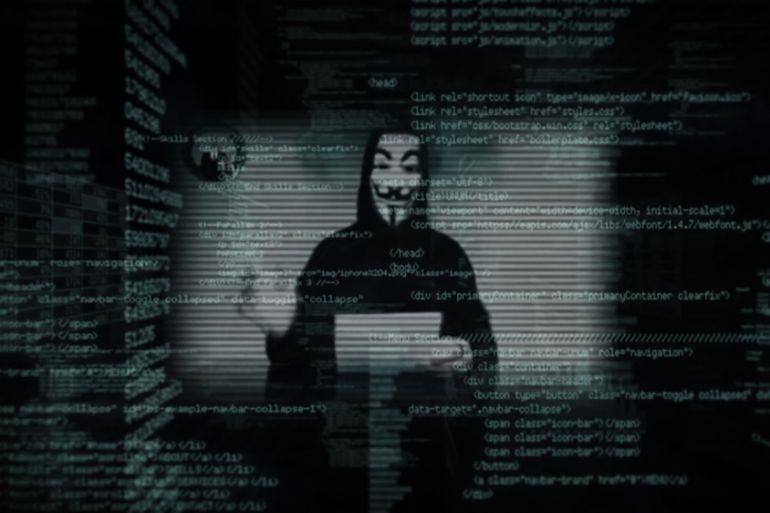Q&A: In Syria the ‘internet has become a weapon’ of war
Al Jazeera speaks to Basel Matar about a project providing a safer online environment for Syrian dissidents.

The SalamaTech Project was founded to help provide a safer internet environment for Syrians experiencing the Syria crisis inside and outside the country.
The project came together in August 2012. It is based in Canada’s capital city, Ottawa and is funded by a few agencies in North America.
Keep reading
list of 4 itemsAre seed-sowing drones the answer to global deforestation?
Rare deep-sea squid filmed by scientists
Palestinian life under Israeli occupation: An illustrated guideThis article will be opened in a new browser window
SalamaTech Syria monitors what goes on in Syrian cyberspace and also attempts to spread awareness on any risks that Syrian internet-users might be facing. SalamaTech also has team members inside Syria and in neighbouring Middle Eastern countries to help provide any training necessary for a safer internet environment.
Al Jazeera reached Basel Matar who is SalamaTech’s director of outreach to talk about the project’s initiatives and the risks that many Syrians may face.
Al Jazeera: What is the reason behind SalamaTech’s focus on the internet in Syria?
Basel Matar: The internet has been a key instrument for Syrians in this revolution and the Syrian government has realised this. It has capabilities to censor and monitor the internet.
|
|
When the revolution started and Syrians started using the internet to communicate, generate shares and document human rights violations, the government increased their monitoring capabilities. We identify risks and alert the Syrian public of risks from any new technologies that are used for monitoring. We also help activists close their accounts if needed.
Al Jazeera: Help activists close their online accounts, meaning?
Matar: Those activists use emails, Facebook and Twitter for spreading certain information and for communicating. When an activist gets arrested, the government security services ask for the passwords for any of their online accounts. That happens regularly. So we close those accounts in order to protect these activists.
When someone gets arrested, someone from their own network reaches out to us and reports the case and then we delete their online accounts.
When an activist gets released we only reinstate their online accounts when we are sure that they are safe and these online accounts pose no threat to them.
Al Jazeera: How does the Assad regime benefit from obtaining these online accounts?
Matar: The internet has become a weapon. It is used by activists and others to communicate and coordinate. So, there is a lot of information on emails, Facebook, private Skype conversations that can be found useful by the government. It gives them more insight into what is happening [in Syria] and also who is doing what, it also helps expose the networks of these activists inside Syria. It is a war and this information is power.
Al Jazeera: There are reports of Jabhat al-Nusra torturing Syrians for their online accounts. They are not the government so how do they benefit?
Matar: There are people in Syria who are documenting atrocities that are carried out by all parties in the conflict. Certainly Jabhat al-Nusra wants to know who is doing this. If they get a hold of an activist and they have suspicions that this activist may be capturing actual footage [of acts] by al-Nusra, they would certainly want to punish that activist. And accessing these activists’ online accounts is the way for them to find out.
Al Jazeera: How are regular Syrian citizens at risk and how do you help?
Matar: The government has another part that I did not mention which is the Syrian Electronic Army (SEA). This is a group of hackers affiliated with the Syrian government.
The SEA tries to target Syrians in general; anyone who is online.
If you communicate with an activist, if you communicate your family inside Syria and if you talk about what is happening in a way that is not favourable by the regime, you become at risk.
What we do is we reach out to the Syrian population through social media regularly by providing information and knowledge. We plan awareness campaigns, how to use social media safely, how to communicate through email safely. Also what are the best practices and best applications to use. [We say] Don’t use Whatsapp because it could be hacked into very easily, use another application, etc.
Al Jazeera: What do you want to accomplish in the future of SalamaTech?
Matar: I would like to be able to reach more activists. I would like to see more people trained. I would like to see more Syrian groups and organisations becoming more interested in the topic and coming to us. It already happens, but I would like it to reach a point where everyone comes to us and not just a handful.